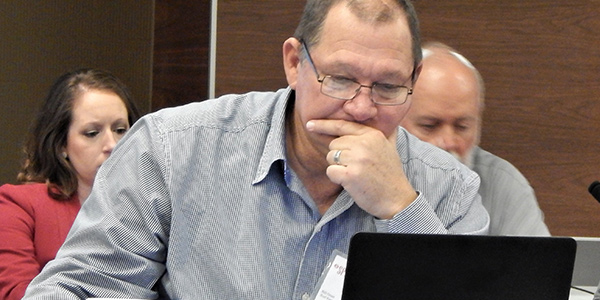By Tom Kleckner
LITTLE ROCK, Ark. — SPP stakeholders last week directed the Seams Steering Committee to stop work on proposed Tariff changes that would have granted a waiver from charges for unreserved transmission use across the seams.
The Market and Operations Policy Committee’s action during its Oct. 16-17 meeting means SPP’s current practices for unreserved use will continue. They have resulted in about $23,000 in service charges since 2016, but only when that unreserved use is reported to the RTO.
The revision request (RR308) would have granted transmission customers a four-hour grace period for unreserved service during an unplanned transmission outage. SPP’s Tariff and its business practices do not allow exemptions for transmission customers using the RTO’s system to take transmission service because of outages, whether planned or unplanned.
The SSC was unable to reach a consensus during its monthslong discussions, with some members saying temporary use of interconnected systems should be a benefit and others calling for transmission owners to be compensated. The four-hour grace period was a compromise position.
“Several members thought the four-hour grace period was at least some justification to take this to FERC and stakeholders,” American Electric Power’s Jim Jacoby, chair of the SSC, told the MOPC. “It seemed to have at least some backing. From an AEP perspective, that’s a benefit of interconnected systems. We ought to give customers some time [to arrange service during an unplanned outage].”
RR308 received little support from SPP’s legal department. Associate General Counsel Mike Riley pointed to excerpts from FERC Orders 890 and 890-A, which address situations where a customer is unaware of changing conditions that result in additional service requirements. Riley said FERC’s language does not exempt “any class of transmission customer from the potential assessment of unreserved use penalties” and refers to entities “serving native load in multiple control areas.”
“Not being a FERC commissioner, it’s hard to say what the [language] is intended to cover, but when I read words like ‘multiple control areas,’ that seems applicable to us,” said SPP’s David Kelley, director of seams and market design.
“If SPP and the stakeholders have a basis for filing and justifying this four-hour window, or grace period, we’ll absolutely file it,” Riley said. “But based on 890’s provisions, where FERC appears not to make a distinction between reserved use and unreserved use, we’ve got an uphill battle.”
Riley agreed with the concept of a grace period before assessing penalties, saying it should be a business practice in the Tariff.
“We just haven’t seen or found a justification that would get us over the 890/890-A hurdle, but it’s up to FERC,” he said.
Several members suggested SPP could conform its practices with those of MISO — which Southwestern Public Service’s Bill Grant said MISO does not apply unreserved charges in similar situations — through their joint operating agreement. But Kelley pointed out, “Even if we address this issue through the JOA, we’ll still have to make a filing at the commission. We still have to get around the hurdles of what we’re arguing.”
“This is not being applied consistently,” Grant said. “Only when SPP knows about it.”
“What we’re trying to do is address the unfortunate bystander that doesn’t know what’s going on, and only finds out about it when they get a bill,” AEP’s Richard Ross said.
On the sidelines, some members referred to the TOs who reported unreserved use as “tattletales.”
The MOPC’s motion passed over 10 opposing votes and five abstentions.






